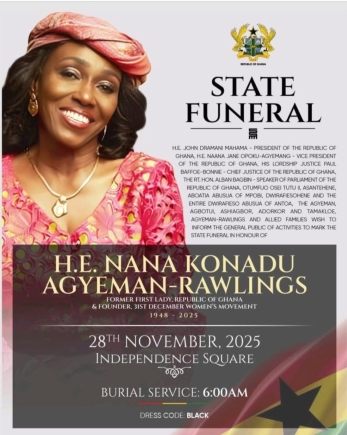The Nuclear Regulatory Authority (NRA) has organised a dissemination workshop to mark the end of a European Union-funded project aimed at enhancing nuclear safety cooperation in the country.
Known as the ‘European Instrument for International Nuclear Safety Cooperation’ (INSC), the six-year project was implemented by ENCONET Consulting, with the NRA as the recipient.
The 1.75 million Euro project has supported the NRA in the development of a regulatory strategy for nuclear power, an Integrated Management System, and human resources, regulatory documents, and licensing support.
Additionally, the project supported transparency, public information, and collaboration with the International Atomic Energy Agency.
Also, under the project, the NRA mechanisms for nuclear liability were developed, focusing on assessing the financial capabilities of individuals or organisations entering the nuclear business.
INSC project
The Director of Nuclear Installations at the NRA, Emmanuel Ampomah-Amoako, said the project has strengthened the regulatory infrastructure for nuclear safety, which was crucial for future nuclear power development.
He said the project has helped the country to finalise its nuclear safety strategy and set up an insurance pool for nuclear liability.
As part of the benefits from the project, the NRA was setting up a communication strategy and regulatory framework for small modular reactors.
“We also have regulations which have received international review, and these regulations are fit for purpose and have been submitted to the Attorney General's Department.
For the nine that have been submitted, five of them came from this project.
Others are at different stages of review, which will also go for approval,” he added.
The Director-General of the Nuclear Regulatory Authority (NRA), Professor Francis Otoo, added that the NRA’s regulatory strategy, when approved by parliament, would serve as a working document for the NRA to become an effective and independent regulatory body.
He thanked the EU for its support and expressed his desire for continuous collaboration.
Nuclear safety
The Deputy European Union (EU) Ambassador to Ghana, Jonas Claes, explained that the INSC was a dedicated tool to promote nuclear safety, radiation protection, and effective safeguards in countries outside the EU.
“We help to improve nuclear safety culture, safely manage radioactive waste, and implement nuclear safeguards according to international and EU norms,” he said.
Through the project, he said the NRA now has, among others, a regulatory strategy, nine draft regulations for nuclear power plants, including provisions for Small Modular Reactors, an Integrated Management System, a human resources development plan and enhanced public communication.
“Through training in three EU Member States; Hungary, Slovenia and Slovakia, the NRA has built strong technical expertise to regulate, inspect and enforce,” he said.
He expressed the EU’s commitment to support the country in achieving the highest standards of nuclear safety.
Government support
The Acting Chief Director of the Ministry of Environment, Science, Technology and Innovation, Kwamena Quaison, said the approval of the nuclear and radiation safety policy and the review of five out of nine regulations under review by the Attorney General's Department were significant achievements.
He pointed out that an audit of the integrated management system of the NRA under ISO 9001:2015 was expected to be conducted by the end of the year.
He said there were still potential areas for collaboration, including setting up a radiation monitoring system and an Emergency Response Centre.
He reaffirmed the Ministry’s commitment to nuclear safety and security and explored opportunities for advancing collaboration and joint activities.


